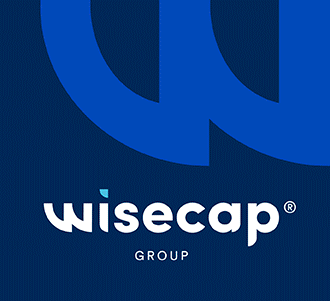More than 40 industry leaders have endorsed a new action plan to tackle global plastics issues, and have begun working together to create a more effective global system for plastics. The action plan is presented in The New Plastics Economy: Catalysing action, a new study by the World Economic Forum and the Ellen MacArthur Foundation with analytical support from SYSTEMIQ, which reveals that concerted action by industry could result in reuse and recycling of 70% of all global plastic packaging, up from today's recycling rate of just 14%. The authors last year revealed that there could be more plastics than fish in the ocean by 2050.
The report provides a clear transition strategy for the global plastics industry to design better packaging, increase recycling rates, and introduce new models for making better use of packaging. It finds that 20% of plastic packaging could be profitably re-used, for example by replacing single-use plastic bags with re-usable alternatives, or by designing innovative packaging models based on product refills. A further 50% of plastic packaging could be profitably recycled if improvements are made to packaging design and systems for managing it after use. Without fundamental redesign and innovation, the remaining 30% of plastic packaging (by weight) will never be recycled and will continue to destine the equivalent of 10 billion garbage bags per year to landfill or incineration. Innovation in packaging design, recyclable and compostable materials, and reprocessing technologies are likely all required to move this challenging segment forward.
The action plan was produced as part of the http://newplasticseconomy.org/New Plastics Economy initiative, which was launched in May 2016 as a direct result of Project MainStream, a multi-industry, CEO-led collaboration led by the World Economic Forum and the Ellen MacArthur Foundation. The New Plastics Economy initiative brings together more than 40 leading organisations representing the entire global plastics industry, from chemical manufacturers to consumer goods producers, retailers, city authorities and recyclers, to work together towards a more effective global system. Core Partners in the New Plastics Economy initiative include Amcor, The Coca-Cola Company, Danone, MARS, Novamont, Unilever, and Veolia. Wendy Schmidt, through The Eric and Wendy Schmidt Fund for Strategic Innovation, is the Lead Philanthropic Partner of the New Plastics Economy initiative, and Players of People’s Postcode Lottery (GB), the MAVA Foundation and the Oak Foundation are Philanthropic Funders.
"The New Plastics Economy initiative has attracted widespread support, and across the industry we are seeing strong initial momentum and alignment on the direction to take. The New Plastics Economy: Catalysing action provides a clear plan for redesigning the global plastics system, paving the way for concerted action."
Dame Ellen MacArthur, Founder, Ellen MacArthur Foundation
"This could drive systemic change. The plan puts innovation at the heart of a strategy that could shift the entire system while unlocking a billion dollar business opportunity. Alignment along value chains and between the public and private sector is key to this."
Dominic Waughray, Head of Public-Private Partnership, Member of the Executive Committee, World Economic Forum?
The focus of the New Plastics Economy over the next year will be on bringing about wide scale innovation. The initiative will launch two global innovation challenges to kick-start the redesign of materials and packaging formats, and begin building a set of global common standards (a ‘Global Plastics Protocol’) for packaging design, concentrating initially on the most impactful changes. It will also improve recycling systems by delivering collaborative projects between participant companies and cities. To support the shift to “circular” design thinking and systems perspectives and to inspire innovators, entrepreneurs and designers, the Ellen MacArthur Foundation and IDEO are launching a new, publicly available ‘circular design guide’ at Davos in January 2017.
"Minor changes in material, format and treatment can – in conjunction – make the economics of recycling viable and take us into a positive spiral of higher yields, lower costs and better design. The result will be plastic that remains a valuable material before and after use."
Prof. Dr. Martin R. Stuchtey, Professor for Resource Strategy and Management at Innsbruck University; Co-Founder, SYSTEMIQ?
Note: Players of People’s Postcode Lottery (GB), the MAVA Foundation and the Oak Foundation are philanthropic funders of the New Plastics Economy initiative. Wendy Schmidt, through The Eric and Wendy Schmidt Fund for Strategic Innovation, is the lead philanthropic partner.
Image: Ellen MacArthur Foundation






